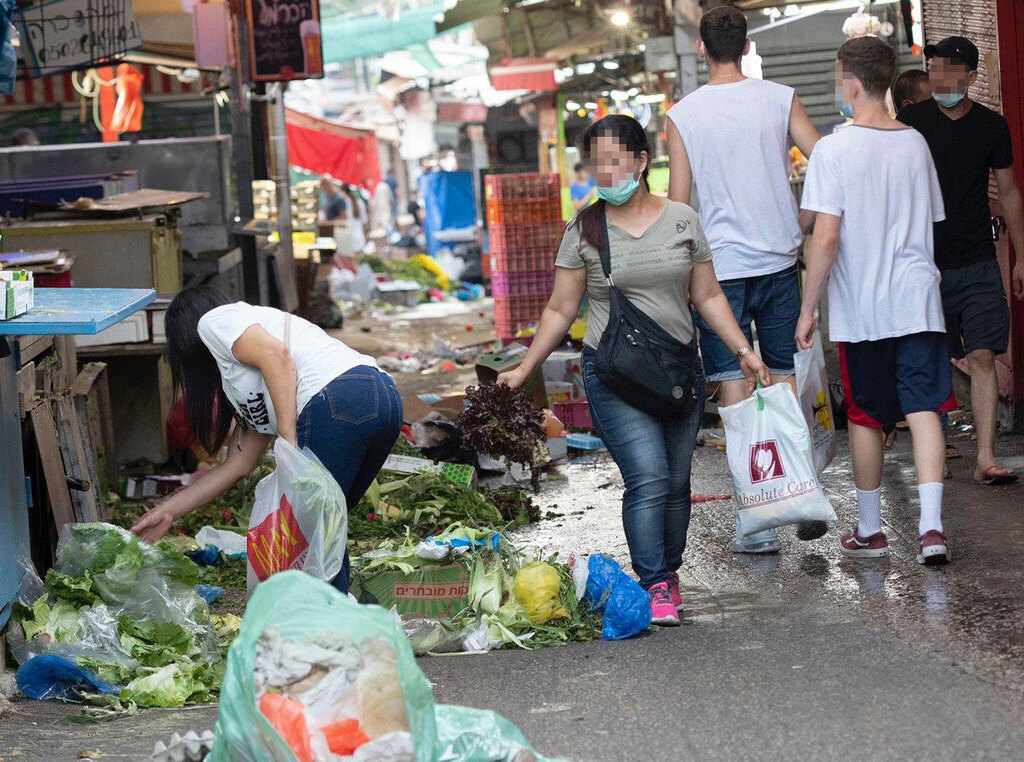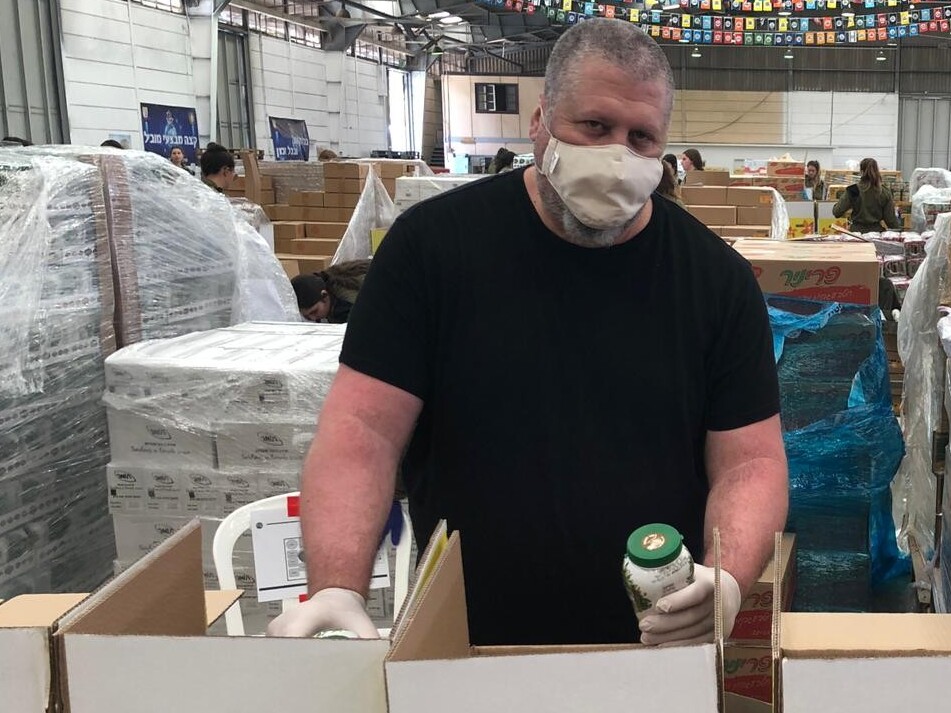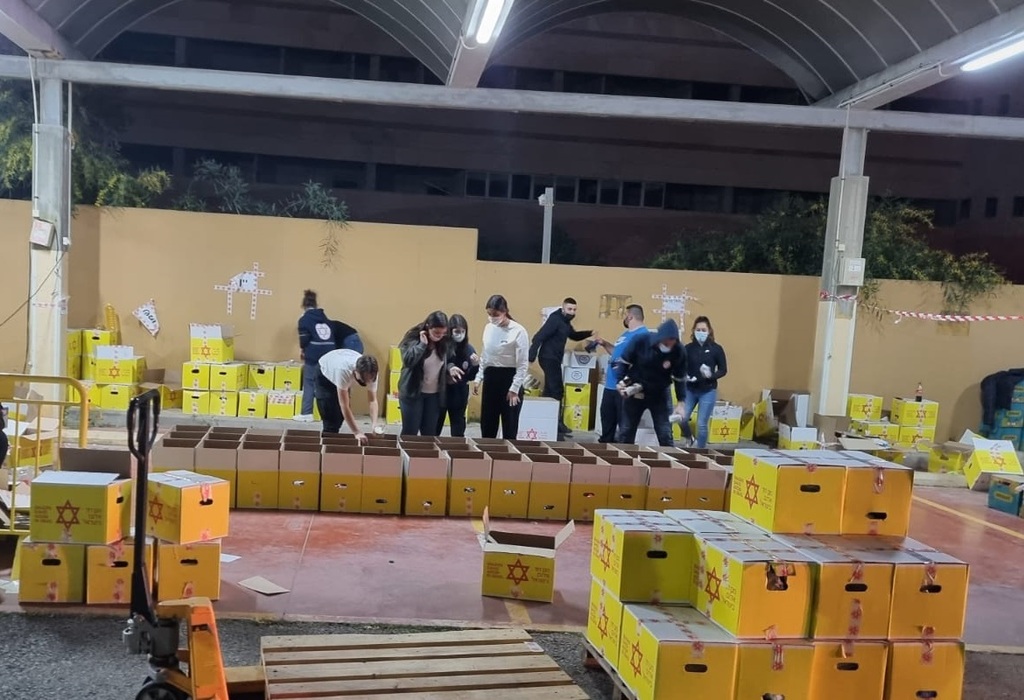Getting your Trinity Audio player ready...
Two million Israelis suffer from food insecurity and don't have access to adequate quantities of nutritious foods, according to a reported published Wednesday by Israel's largest anti-poverty non-governmental organization.
The report by the Latet NGO shows that 633,000 families in Israel don't have enough resources to fulfill their daily dietary needs. Of the two million people in need of sufficient nutrition, 774,000 are children - which is one third of the kids in Israel.
3 View gallery


A woman searches the garbage for food at an Israeli market during the coronavirus pandemic
(Photo: Nadav Abas)
Miri Rofe, 37, a mother of four from Holon, is one of those experiencing food insecurity and for her, wishing for a regular healthy meal has turned into a daily battle for survival.
"Sometimes I have no food to give to my children, and I can't stand the fact that as a mother, I don't have the ability to give them what they need," she said.
One of her daughters is on the autism spectrum, another suffers a severe eating disorder. Miri herself suffers physical and mental disabilities due to two accidents she has had. "I find myself running with my daughters from one treatment to another, and as a result, no workplace is willing to keep me, even on a part time basis," said Miri.
When she tried to contact the Welfare and Social Affairs Ministry, she was left without an answer. "I'm in a fight for existence, and I have reached the point where I have to decide what to pay for - rent, food or taxes? I feel like I was left alone and abandoned by the state."
Since start of the COVID pandemic, hundreds of thousands of families in Israel have been affected economically, and Miri is just one of many others who are in the same situation.
And while many Israelis even afford food, the government has allocated only NIS 100 million to deal with the issue after years of budgetary neglect, which at this point appears to be just a drop in the ocean.
A report by the Knesset Research and Information Center that was published last month said at the end of 2020, only 200,000 families suffered from food shortages, which is actually three times lower than the real figure. Therefore, when the numbers are so misleading, many families are left in distress without the state's aid.
3 View gallery


Latet Executive Director Eran Weintrob assisting at a food bank during the pandemic
(Photo: Courtesy)
Latet Executive Director Eran Weintrob says that the onset of COVID-19 and the economic crisis that followed have worsen the distress of low-income families, who were suffering even before the pandemic.
"Although the government allocated NIS 100 million, the amount needed in order to solve this situation is about NIS 1 billion."


